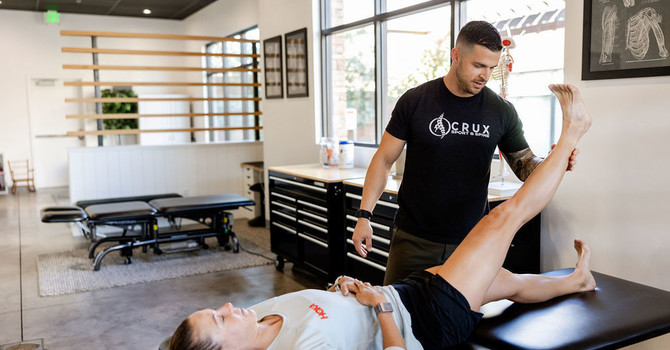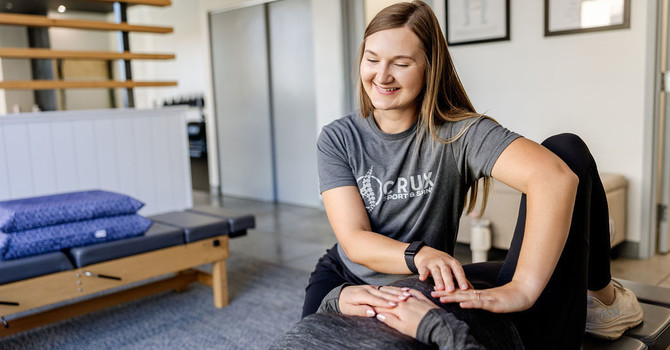
In the pursuit of athletic performance and injury recovery, we often focus on hot/cold therapy, nutrition, and various training techniques. However, there’s an often-overlooked recovery tool that holds incredible potential: sleep. In this article, we delve into the science behind sleep as the ultimate recovery tool for injuries and provide practical tips to optimize your sleep for better injury rehabilitation
The Healing Power Of Sleep
Sleep as a Vital Biological Process:
Sleep is not merely a state of rest; it is a fundamental biological process that allows our bodies to heal and regenerate. Deep sleep plays a critical role in tissue repair, muscle growth, and immune system function, facilitating efficient injury recovery.
Inflammation and Pain Reduction:
Quality sleep acts as a natural anti-inflammatory and pain management mechanism. Lack of sleep disrupts the body’s inflammatory markers, making it more challenging to resolve inflammation. Additionally, sleep deprivation lowers the pain threshold, intensifying discomfort. Adequate sleep duration and quality can significantly impact the speed and effectiveness of injury recovery.
Sleep for tissue Repair and growth Hormone Release
Growth Hormone’s Role in Recovery:
During sleep, the release of growth hormone (GH) is vital for tissue repair, protein synthesis, and accelerated healing. Deep, uninterrupted sleep maximizes GH secretion, enhancing the body’s ability to regenerate damaged tissues.
Cognitive Restoration and Emotional Well-being:
Injuries often come with psychological burdens, such as frustration, anxiety, and depression. Sleep deprivation amplifies negative emotions and impairs cognitive function, making it harder to cope with the mental and emotional challenges of recovery. Sufficient sleep enhances mood regulation, memory consolidation, and overall cognitive performance, contributing to a healthier mental state during the healing process.
Practical Tips for Optimizing sleep habits
Prioritizing Consistent Sleep Schedule:
Establishing a regular sleep schedule helps regulate the body’s internal clock, optimizing the sleep-wake cycle and promoting efficient recovery. Consistency in bedtime and wake-up time, even on weekends, supports a balanced sleep pattern.
Creating a Sleep-Friendly Environment:
Designing a sleep environment that promotes relaxation is crucial. Ensure your bedroom is cool, quiet, and dark. Use curtains or blinds to block out external light and consider using earplugs or a white noise machine to minimize disruptive sounds. Investing in a comfortable mattress and pillows that suit your needs can significantly enhance sleep quality.
Establishing a Relaxing Bedtime Routine:
Engaging in calming activities before bed signals to the body that it’s time to wind down. Reading a book, taking a warm bath, practicing deep breathing exercises, or gentle stretching can help prepare your mind and body for sleep. Avoid stimulating activities and the consumption of caffeine or other stimulants close to bedtime.
Managing Light Exposure:
Minimize exposure to bright light, especially blue light emitted by electronic devices, as it disrupts the natural sleep-wake cycle. Limit screen time, use blue light filters, or consider wearing blue-light-blocking glasses to mitigate the impact of artificial light on your sleep.
Maintaining Healthy Lifestyle Habits:
Regular exercise, stress management, and a balanced diet positively influence sleep quality. Engaging in physical activity promotes better sleep, while stress reduction techniques like meditation, yoga, or deep breathing exercises help relax the mind. Avoid heavy meals, caffeine, and alcohol close to bedtime, as they can interfere with sleep.
Conclusion
Sleep is a powerful recovery tool that should not be underestimated in injury healing and performance optimization. By understanding the science behind sleep and implementing practical tips to improve sleep habits, we can unlock its incredible benefits. Prioritize consistent sleep schedules, create a sleep-friendly environment, establish relaxing bedtime routines, and adopt healthy lifestyle habits. Embrace the healing power of sleep to accelerate your injury rehabilitation, improve performance, and achieve your goals.
Disclaimer: The information provided in this article is for educational purposes only and should not replace professional medical advice. If you have specific concerns about your sleep or injury recovery, consult with a healthcare professional.
Dr. Trevor Tipton
Contact Me


